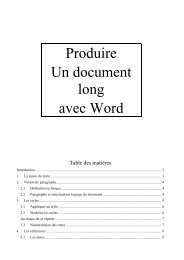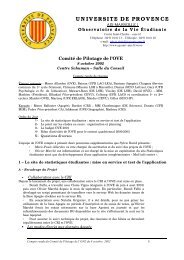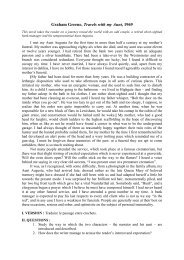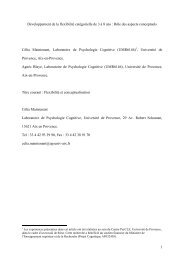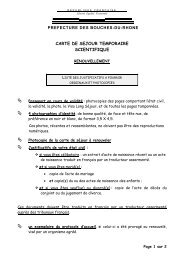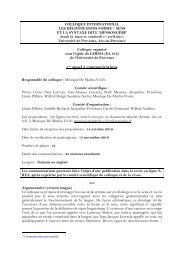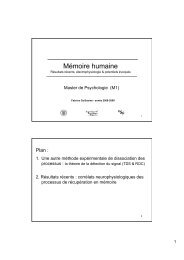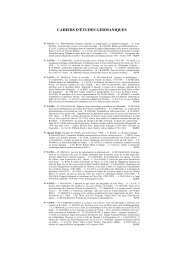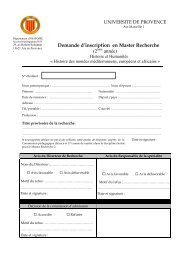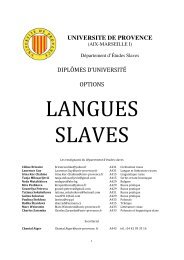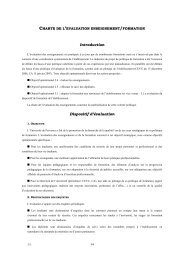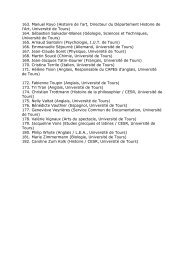George Orwell : 1984 Suggested Commentary George Orwell's ...
George Orwell : 1984 Suggested Commentary George Orwell's ...
George Orwell : 1984 Suggested Commentary George Orwell's ...
- No tags were found...
You also want an ePaper? Increase the reach of your titles
YUMPU automatically turns print PDFs into web optimized ePapers that Google loves.
The flashback not only describes the nightmarish behaviour of the crowd, but narratesthe intriguing encounter during which Winston is passed the book (“a man whose facehe did not see had tapped him on the shoulder”. And Winston’s instant understandingthat “it would be days before he had an opportunity to look inside it” only makes sensewhen we realise that as a result of state affairs, the workers from the Ministry will berequired to rewrite history. The delay caused by the flashback also allows the reader tounderstand better why Winston feels so utterly exhausted, and can also help explainwhy the sensation of reading gives him such sensations of delight.The extract from the book he reads is another means by which the narrator shifts hisvoice and his position in the text. As soon as the reader reaches the words “The theoryand practice of Oligarchical Collectivism” they know that they are now in a text withinthe text, reading the exact words Winston is reading, and that a different narrative voicehas thus taken over. This creates an interesting narrative effect which also enforces thepower of the external narrator who can move in and out of the text. At some points thenarrative voice is absent (in the quoted paragraph from Goldstein’s text), sometimespresent detailing recent events and showing strict control of the plot, and sometimesintimate and secret, as the world is seen through Winston’s eyes, thus encouraging thereader to identify with Winston.Winston is indeed the only character with any psychological depth in this extract. He ispresented as a single, vulnerable, acutely sensitive individual, thus creating a strikingcontrast with the brute force of the crowd he observes during hate week. In the openingparagraph of the extract, he is seen not only as individual, but as almost breaking up, asif his life were draining out of him (“gelatinous” “weakness of a jelly” “frail structure ofnerves, bones and skin”). The reader also has the impression that he is so drained ofenergy that his body ceases to function as a coordinated whole, but as a sum or parts(hand, blood, lymph, shoulders, feet, joints, knee, sin of his leg). When this description iscompared to the massive crowd scene, we see that the crowd too seems to be made ofparts of bodies (white faces, arms, skull, bony arm, ). The reader gradually gains theimpression that the state functions by taking over the very bodies of the people, as ifthey have no independent physical existence. In Winston’s case, however, he seemsacutely aware of what the state is doing to him, which we can later link to his role as asubversive voice or presence in the state machine.The description of the crowd scene also insists on Winston’s separation or hisdifference from those around him. It is through his eyes that the reader sees theimmense crowd packing a London square (several thousand people, a thousandchildren, thousands of throats), and the long list of nouns describing the events alsoshows Winston’s position as onlooker not partaking in the rally : “the processions, thespeeches, the shouting, the singing, the banners….”. A similar rhetorical effect ofenumeration (or asyndeton) is achieved some lines later (atrocities, massacres,deportations, lootings, rapings, etc” The effect of such accumulations is double. First itseems to suggest the insistent way in which the speaker himself is drumming home themessage of his speech. Second, it implies that this is how Eurasia functions, overloadingthe senses with highly charged words that seem to enforce a few of reality from whichthere is no escaping. Excess, in any case, seems to be the prime characteristic of Eurasia.Excess because it organises a Hate Week with rallies every day. Excess because of theextreme violence with which political rallies are staged “he gripped the neck of themicrophone …” and the hysterical reactions from the crowd that are being provoked(“delirium”; “feral roars of rage were again bursting from the crowd”) and excess too



